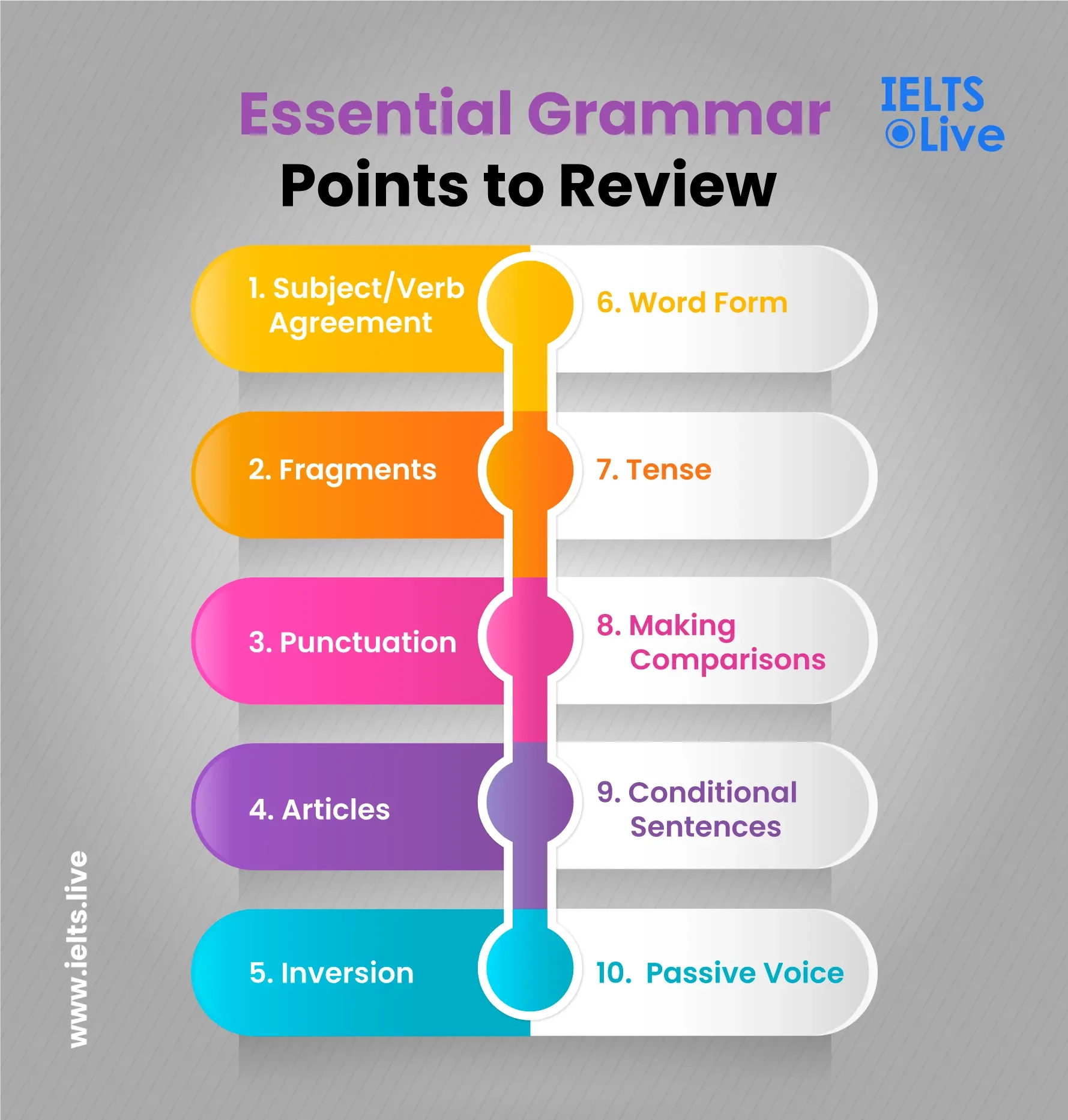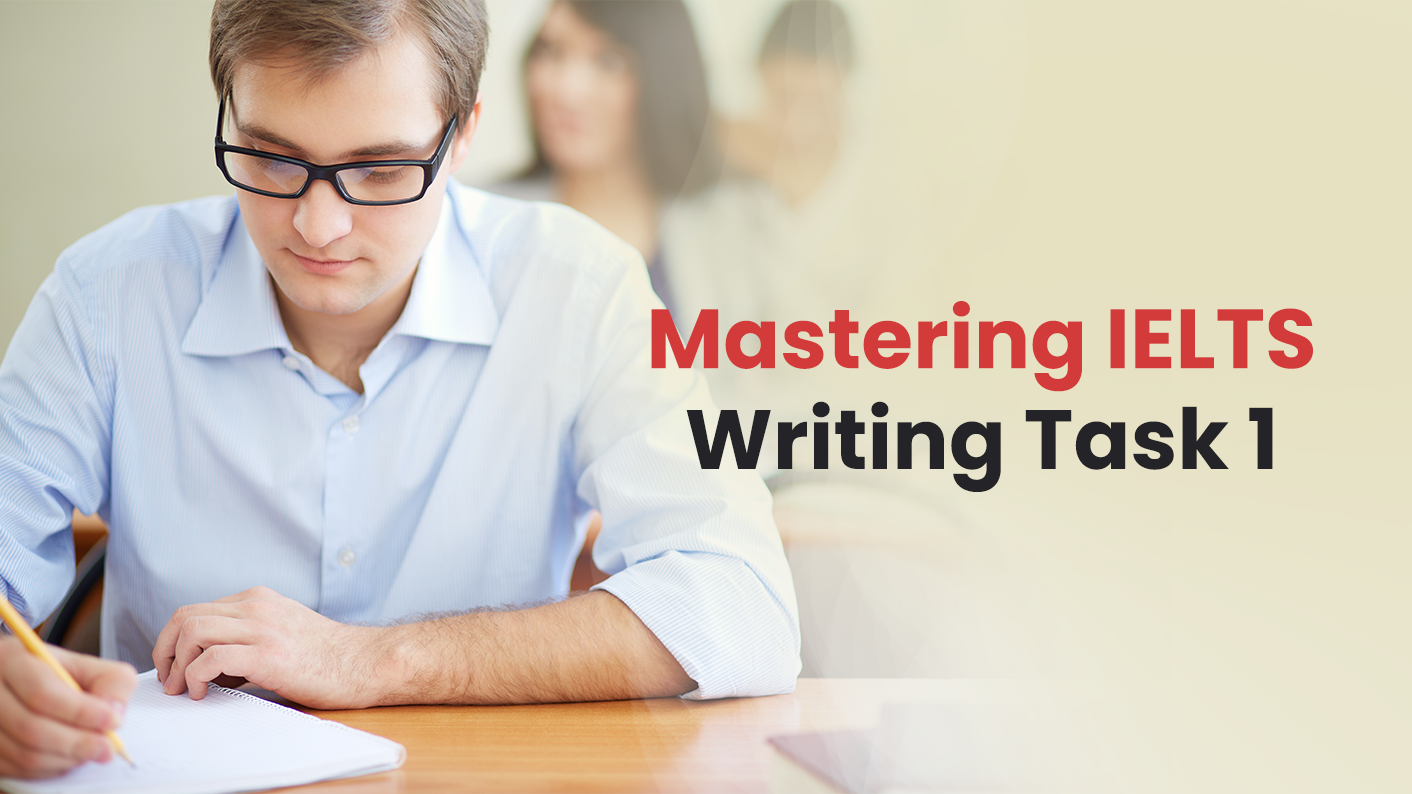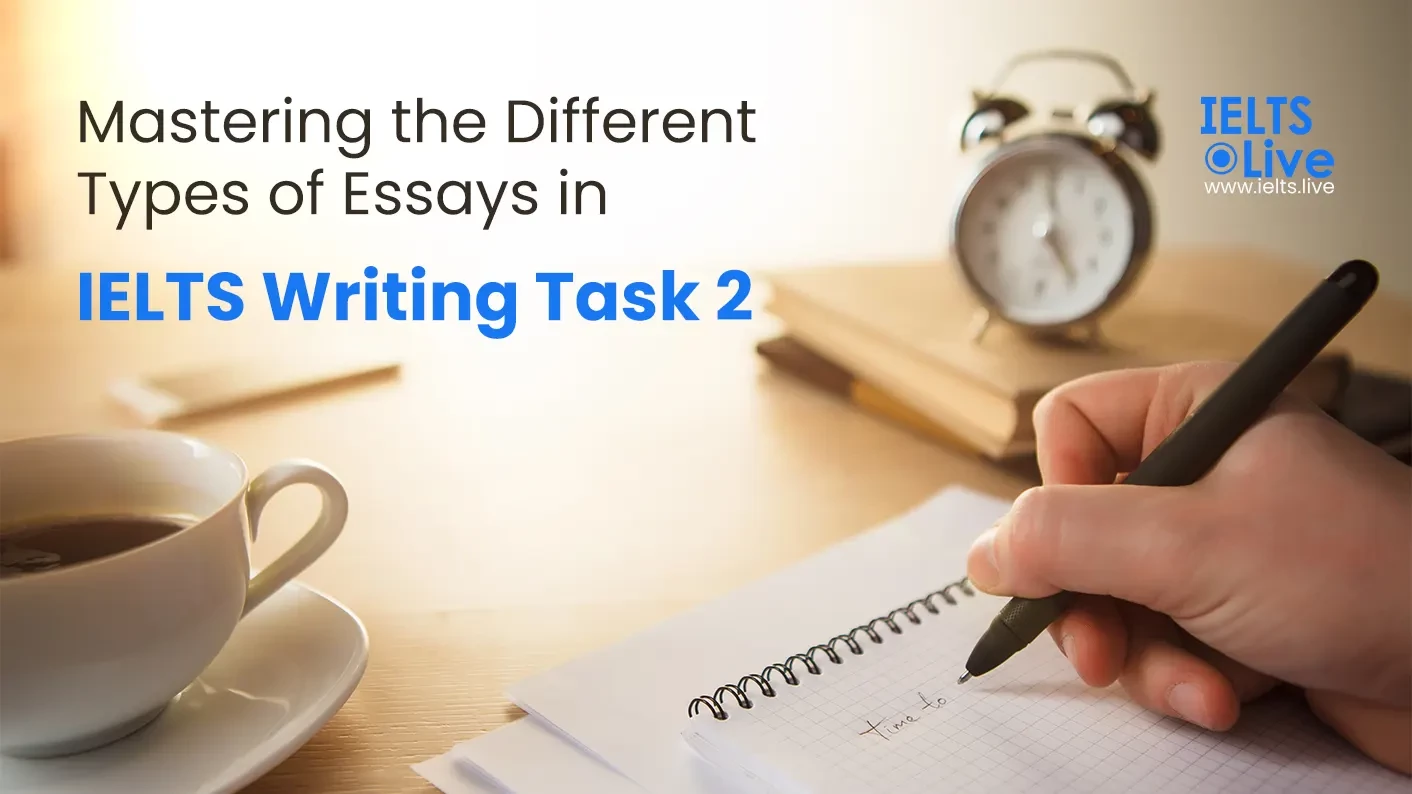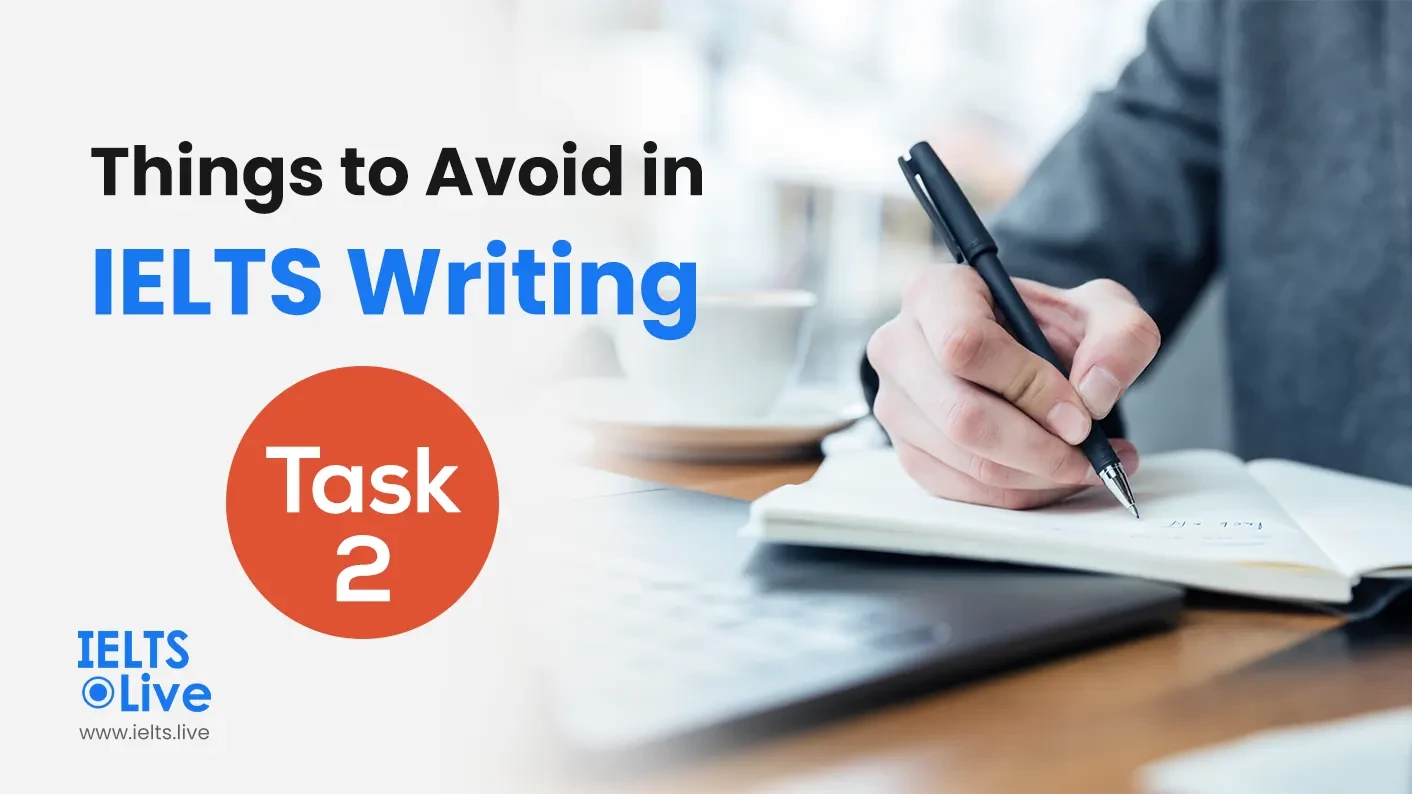
Imagine this: You're sitting in a quiet room, your pen gliding across the paper as you write your final essay for your IELTS writing test. You've spent countless hours developing your writing abilities, skillfully constructing your arguments, and making sure the structure is sound. But now that there are only five minutes left, anxiety sets in. What can you do in such a brief period of time?
Dear IELTS candidates, this blog post is to help you navigate those crucial final minutes and make the most of every second. We understand the stress you are under, and our goal is to provide you with a comprehensive checklist that will enable you to maximise your score and shine in your final IELTS preparation.
You may also like: 7 common mistakes In IELTS writing and how to overcome them
What Not to Check: Organisation or Content:
Before getting into the specifics, it's critical to comprehend what you shouldn't pay attention to in the last five minutes. You cannot do much about what you’ve written in these few minutes. You can neither alter the ideas you’ve presented nor the order you’ve presented them in.
Although your essay's structure and content are unquestionably important, making significant changes now can confuse you and your audience as well as lower the standard of your work as a whole. Instead, let's focus on small adjustments that can have a big impact on your score within the allotted time.
Essential Grammar Points to Review:
Now that we have our priorities in order, let's examine the grammar issues that need your attention in the final stage of your IELTS writing test. These are the subtleties that can make the difference between a good score and an exceptional one:
-
Subject/Verb Agreement:
Make sure that your subjects and verbs are consistent, eliminating any deviations that might impede the clarity of your message. For example, in a sentence like "The students has submitted their assignments," correcting it to "The students have submitted their assignments" ensures proper subject-verb agreement.
-
Fragments:
Avoid using sentence fragments because they reduce the effect of your ideas. Identify and correct fragments to maintain the flow and coherence of your essay. For instance, revising the fragment "Running through the park" to "I enjoyed running through the park" completes the thought.
-
Punctuation:
Readability can be hampered by comma splices, improperly placed semicolons, and other punctuation mistakes. Examine your essay carefully, correcting any punctuation errors to increase its overall fluency. For example, turning a comma splice like "I love chocolate, it's delicious" into "I love chocolate; it's delicious" creates a clear separation between the two ideas.
-
Articles:
Your writing will become more precise and clear if you learn how to use the articles (a, an, and the) correctly. Confirm that they complement your sentences' intended meanings. For instance, changing "I have seen a movie yesterday" to "I have seen the movie yesterday" makes it clear that you are referring to a specific movie.
-
Inversion:
Learn to effectively use inverted word order to convey emphasis or make a stylistic statement. And you can use it in your IELTS writing. For example, instead of saying "Not only was he tired, but he was also hungry," you can use inversion to say "Not only was he tired, but hungry as well," which adds a smoother flow to the sentence.

6. Word Form:
The accuracy of your essay can be greatly improved by using the appropriate word forms. Pay attention to nouns, verbs, adjectives, and adverbs, ensuring they align with the intended meaning. For instance, replacing "I feel very goodly" with "I feel very good" corrects the incorrect usage of the adverb "goodly."
7. Tense:
To effectively communicate your ideas, verb tenses must be consistent and appropriate. Make sure you have used the tenses correctly and consistently throughout your essay. For example, if you start a paragraph in the past tense, ensure that you maintain that tense throughout the entire paragraph.
8. Making Comparisons:
By using the appropriate comparative forms, you can compare concepts or things with precision. Avoid making common mistakes that could reduce the significance of your comparisons. For instance, instead of saying, "This book is more interesting than any other," you can use the correct comparative form and say, "This book is more interesting than any other book."
9. Conditional Sentences:
Learn how to create and use conditional sentences to demonstrate your ability to precisely express hypothetical situations and their possible outcomes. For example, instead of saying, "If I will have time, I will go to the party," correct it to, "If I have time, I will go to the party."
10. Passive Voice:
Recognise when the passive voice is required and use it cautiously to add variety and depth to your writing. For instance, instead of saying, "They blamed me for the mistake," you can use the passive voice and say, "I was blamed for the mistake."
Tackling Spelling Errors: Techniques to Improve Accuracy
Now let's talk about the difficulty of locating spelling errors, which can be especially challenging when time is running out. Here are two practical ways to improve your accuracy:
-
Reading Your Essay Backward:
Reverse the reading and consider each word separately. This method enables you to step back from your essay's narrative flow, which makes it easier for you to find errors. For example, if the original sentence is "The cat is sleeping peacefully on the mat," reading it backwards as "mat the on peacefully sleeping is cat The" helps you focus on each word and catch any misspellings or typos. I'm not suggesting that you read the words in a sentence backwards. Skimming the essay starting with the last sentence should be enough.
-
Trick Your Brain:
Pretend you're reading your essay for the first time. Spelling errors that might have gone unnoticed during the initial writing process can be found more easily by tricking your brain into reading the text with fresh eyes.
This technique assists you in overcoming the familiarity that can blind you to errors. Imagine that you are reading someone else's essay and pay attention to every word as if it's the first time you've encountered it.
As the final minutes of your IELTS Writing test tick away, it's absolutely essential that you make the most of them. You can significantly improve your essay and raise your score by concentrating on grammar correctness and spelling precision.
Use strategies like reading backwards and tricking your brain to help you spot spelling mistakes, and prioritise minor content changes over major ones.
We understand the stress you are under as you finalise your IELTS preparation, but with effort and focus, you can overcome the challenge of the last five minutes. So, to make those crucial minutes count, take a deep breath, have faith in your abilities, and use the checklist we've provided. Best of luck in your IELTS Writing test, and may your efforts yield remarkable results!










0 COMMENTS